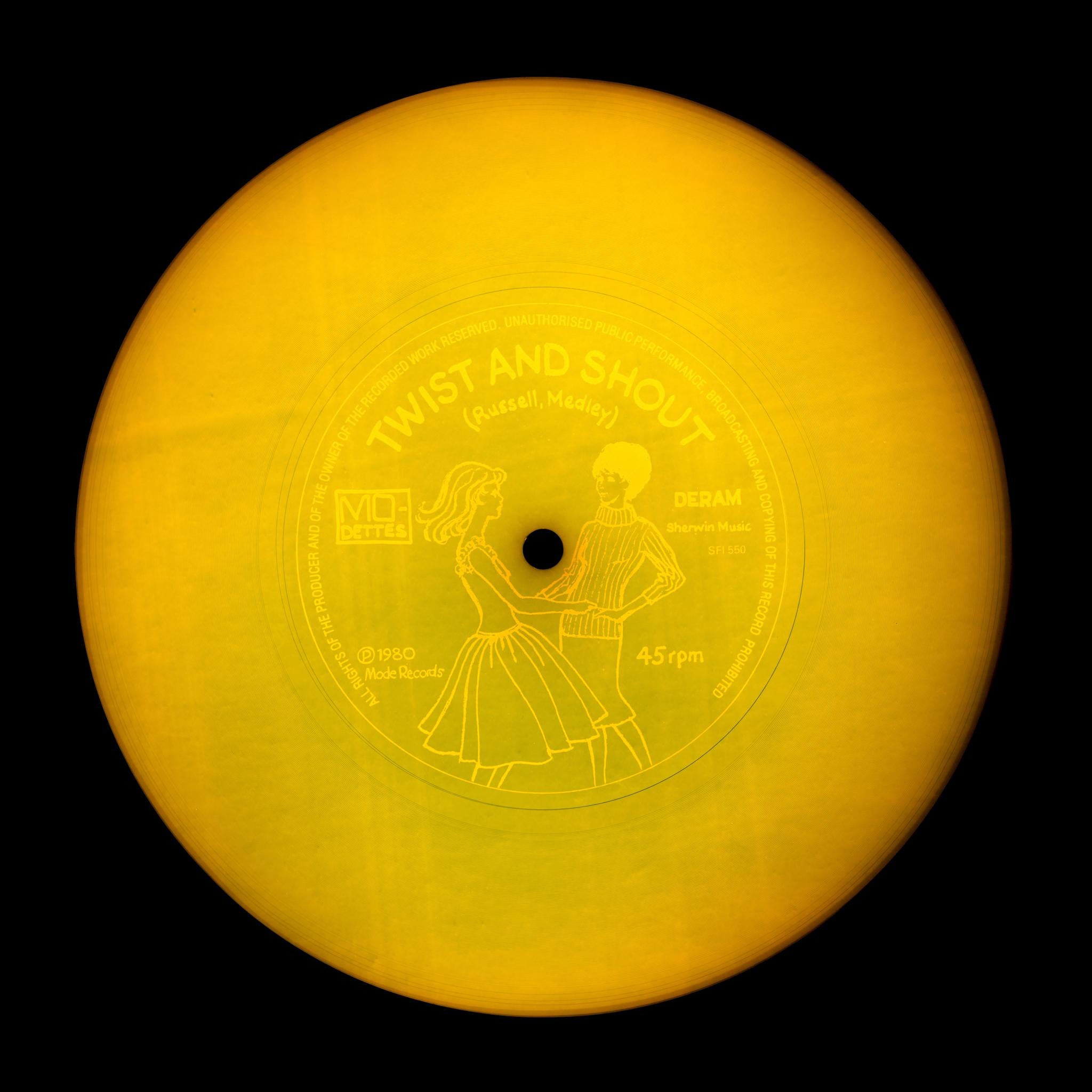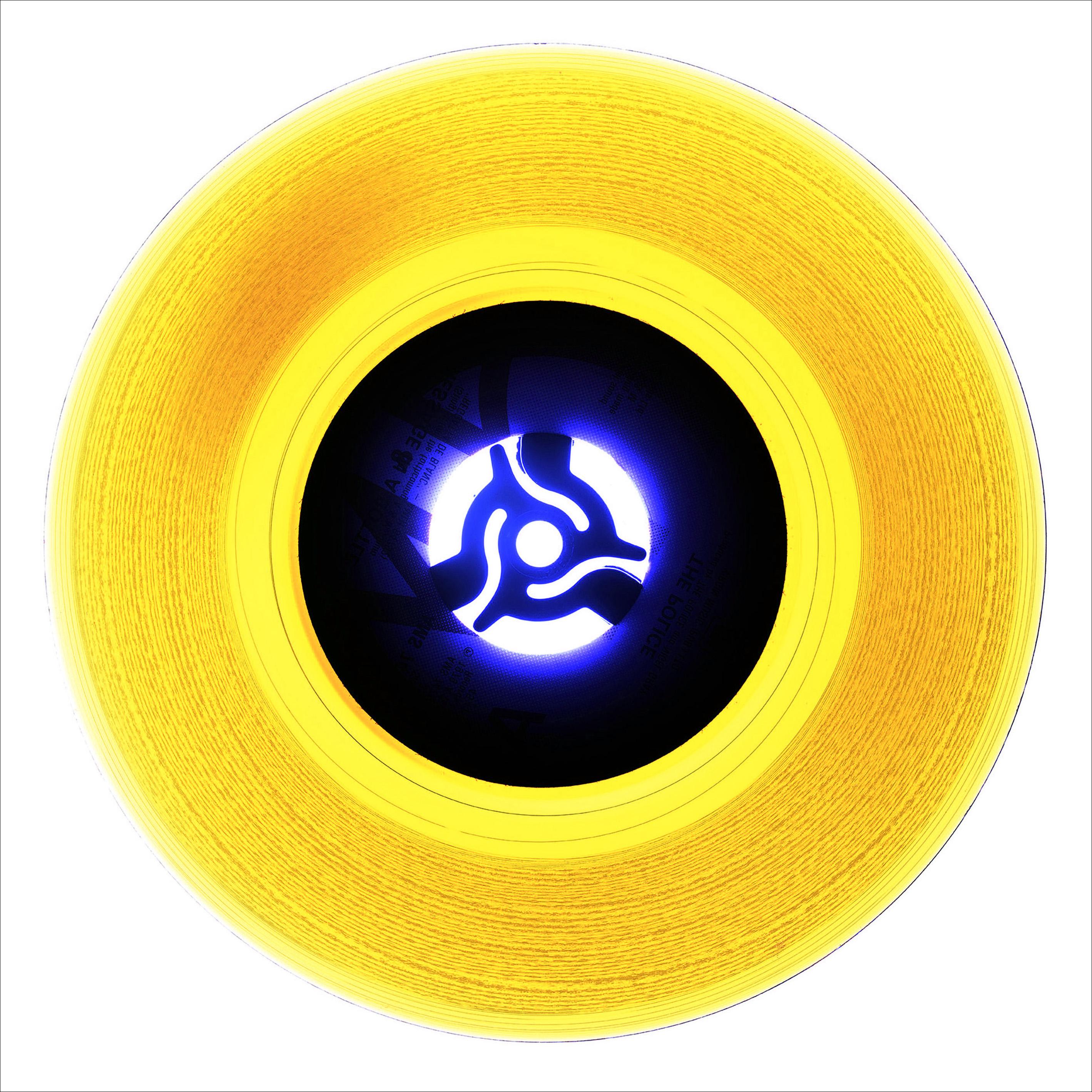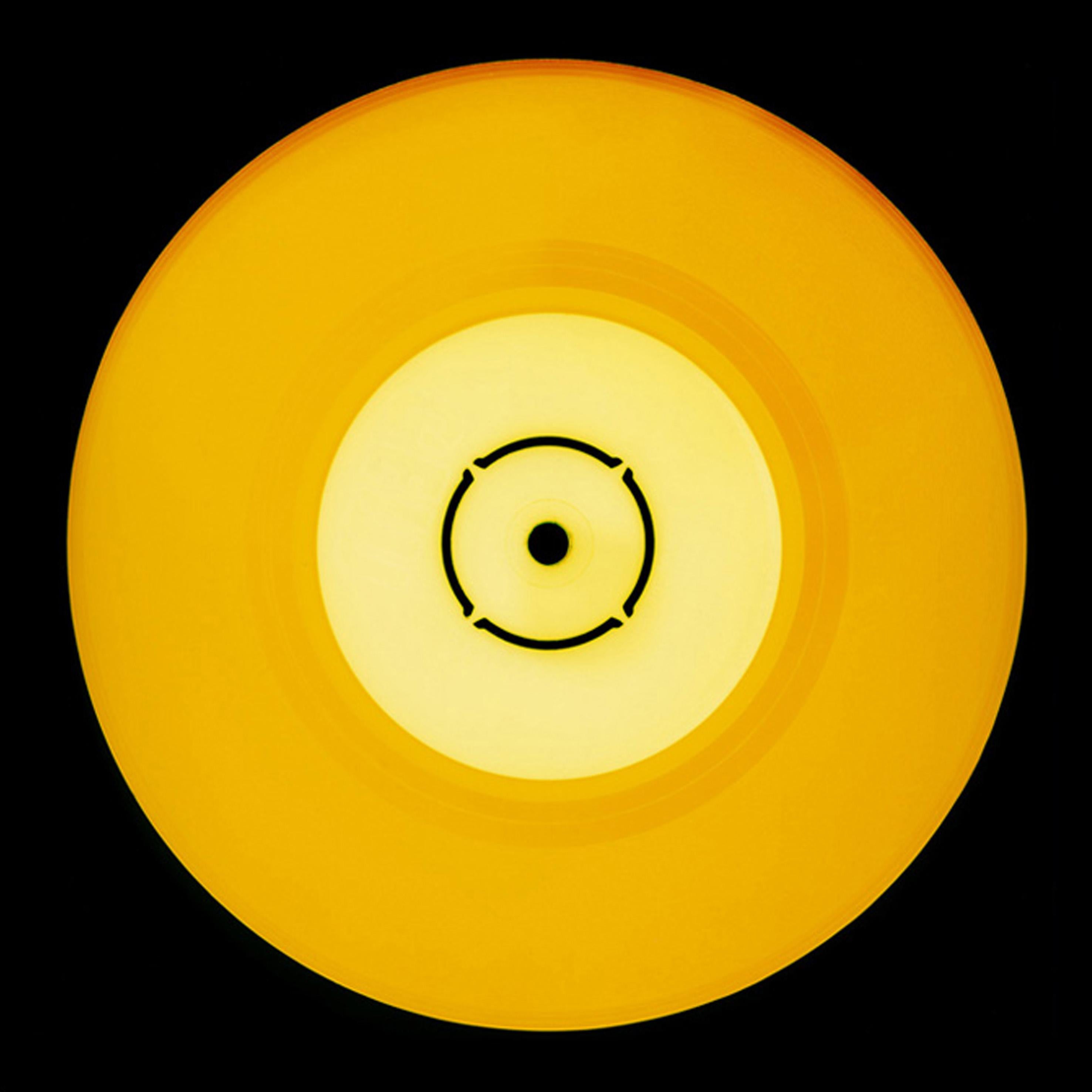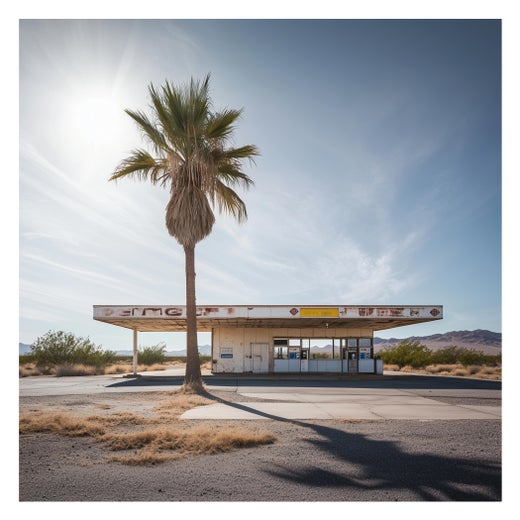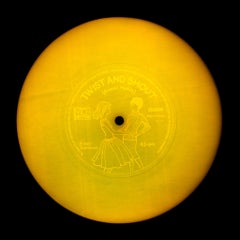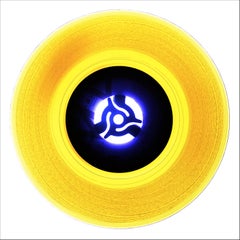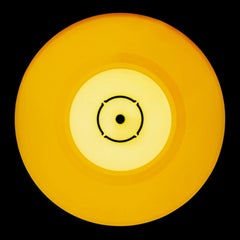Items Similar to House Labels in Yellow II (Chicago, Classic, O.G., Dance, Club, Iconic, 30% OFF)
Video Loading
Want more images or videos?
Request additional images or videos from the seller
1 of 10
Lord FauntleroyHouse Labels in Yellow II (Chicago, Classic, O.G., Dance, Club, Iconic, 30% OFF)2024
2024
$522.22
$75030% Off
£400.22
£574.7830% Off
€459.98
€660.6130% Off
CA$733.48
CA$1,053.4130% Off
A$820.90
A$1,178.9630% Off
CHF 429.71
CHF 617.1430% Off
MX$9,972.49
MX$14,322.2530% Off
NOK 5,456.27
NOK 7,836.1730% Off
SEK 5,148.92
SEK 7,394.7630% Off
DKK 3,432.27
DKK 4,929.3430% Off
About the Item
Lord Fauntleroy
House Labels in Yellow 241206-02
High Gloss Metal Print
with Float Mount Hanger
Year: 2024
Size: 12 inches diameter
Signed: On Label
Edition: 7
COA provided
Lord Fauntleroy is a seasoned photographer with over 30 years of experience, renowned for his unique approach to puppy portraiture. His signature style involves capturing dogs perched on chairs amidst vibrant fields of flowers, creating whimsical and captivating images that tug at the heartstrings.
While Lord Fauntleroy is best known for his adorable puppy portraits, his portfolio extends beyond this niche. He has made a mark in the world of street photography, embracing a snapshot aesthetic that lends raw authenticity to his work. Additionally, his documentary travel photography showcases his keen eye for capturing the essence of diverse cultures and landscapes.
Lord Fauntleroy's artistic journey has taken him across the globe, with exhibitions spanning numerous countries in Europe and North America. His work resonates with audiences worldwide, drawing them into his enchanting visual narratives and celebrating the beauty of both humanity and canine companionship.
#SaffronVibes #IndianStreetDancers #ChicagoHouseBeats #DanceMusicFusion #SaffronRhythm #CulturalGrooves #HouseMusicVibes #DancingInSaffron #GlobalDanceBeats
- Creator:Lord Fauntleroy (1973, American, German)
- Creation Year:2024
- Dimensions:Height: 1 in (2.54 cm)Diameter: 12 in (30.48 cm)
- Medium:
- Movement & Style:
- Period:
- Framing:Frame IncludedFraming Options Available
- Condition:
- Gallery Location:Kansas City, MO
- Reference Number:1stDibs: LU608315602772
Lord Fauntleroy is a seasoned photographer with over 30 years of experience, renowned for his unique approach to puppy portraiture. His signature style involves capturing dogs perched on chairs amidst vibrant fields of flowers, creating whimsical and captivating images that tug at the heartstrings. While Lord Fauntleroy is best known for his adorable puppy portraits, his portfolio extends beyond this niche. He has made a mark in the world of street photography, embracing a snapshot aesthetic that lends raw authenticity to his work. Additionally, his documentary travel photography showcases his keen eye for capturing the essence of diverse cultures and landscapes. Lord Fauntleroy's artistic journey has taken him across the globe, with exhibitions spanning numerous countries in Europe and North America. His work resonates with audiences worldwide, drawing them into his enchanting visual narratives and celebrating the beauty of both humanity and canine companionship.
About the Seller
5.0
Platinum Seller
Premium sellers with a 4.7+ rating and 24-hour response times
Established in 2016
1stDibs seller since 2017
1,086 sales on 1stDibs
Typical response time: <1 hour
- ShippingRetrieving quote...Shipping from: Kansas City, MO
- Return Policy
Authenticity Guarantee
In the unlikely event there’s an issue with an item’s authenticity, contact us within 1 year for a full refund. DetailsMoney-Back Guarantee
If your item is not as described, is damaged in transit, or does not arrive, contact us within 7 days for a full refund. Details24-Hour Cancellation
You have a 24-hour grace period in which to reconsider your purchase, with no questions asked.Vetted Professional Sellers
Our world-class sellers must adhere to strict standards for service and quality, maintaining the integrity of our listings.Price-Match Guarantee
If you find that a seller listed the same item for a lower price elsewhere, we’ll match it.Trusted Global Delivery
Our best-in-class carrier network provides specialized shipping options worldwide, including custom delivery.More From This Seller
View AllHouse Labels in Yellow IV (Chicago, Classic, O.G., Dance, Club, Iconic, 30% OFF)
Located in Kansas City, MO
Lord Fauntleroy
House Labels in Yellow 241206-04
High Gloss Metal Print
with Float Mount Hanger
Year: 2024
Size: 12 inches diameter
Signed: On Label
Edition: 7
COA provided
Lord Fau...
Category
2010s Modern Figurative Photography
Materials
Metal
Ahmedabad 151213-18 (India, Street Dancer, Movement, Rhythm, Vibes, 30% OFF)
Located in Kansas City, MO
Lord Fauntleroy
Ahmedabad 151213-18
High Gloss Metal Print
with Float Mount Hanger
Year: 2015
Size: 12 inches diameter
Signed: On Label
Edition: 7
COA provided
Lord Fauntleroy is a ...
Category
2010s Modern Figurative Photography
Materials
Metal
Missy Elliott (Gold) (50 Years, Hip Hop, Rap, Iconic, Artist, Musician, Rapper)
By Agent X
Located in Kansas City, MO
Agent X
Missy Elliott (Gold) (50 Years, Hip Hop, Rap, Iconic, Artist, Musician, Rapper, Anniversary, Legend, Pop Art)
Archival Pigment Print with Archival Inks on 240 gsm Hahnemühle ...
Category
Early 2000s Pop Art Prints and Multiples
Materials
Archival Paper, Digital
Breakin (50 Years, Hip Hop, Rap, Iconic, Artist, Musician, Rapper, Anniversary)
By Agent X
Located in Kansas City, MO
Agent X
Breakin (50 Years, Hip Hop, Rap, Iconic, Artist, Musician, Rapper, Anniversary, Legend, Pop Art)
Archival Pigment Print with Archival Inks on 240 gsm Hahnemühle Paper
2023
Si...
Category
2010s Pop Art Prints and Multiples
Materials
Archival Paper, Digital
Ahmedabad 151213-84 (India, Street Dancer, Movement, Rhythm, Vibes, 30% OFF)
Located in Kansas City, MO
Lord Fauntleroy
Ahmedabad 151213-84
High Gloss Metal Print
with Float Mount Hanger
Year: 2015
Size: 12 inches diameter
Signed: On Label
Edition: 7
COA provided
Lord Fauntleroy is a ...
Category
2010s Street Art Portrait Photography
Materials
Metal
Ahmedabad 151213-42 (India, Street Dancer, Movement, Rhythm, Vibes, 30% OFF)
Located in Kansas City, MO
Lord Fauntleroy
Ahmedabad 151213-42
High Gloss Metal Print
with Float Mount Hanger
Year: 2015
Size: 12 inches diameter
Signed: On Label
Edition: 7
COA provided
Lord Fauntleroy is a ...
Category
2010s Contemporary Figurative Photography
Materials
Metal
You May Also Like
Vinyl Collection Twist and Shout Yellow - Pop Art Color Photography
By Heidler & Heeps
Located in Cambridge, GB
Heidler & Heeps Vinyl Collection 'Twist and Shout'.
Acclaimed contemporary photographers, Richard Heeps and Natasha Heidler have collaborated to make this beautifully mesmerising co...
Category
2010s Pop Art Color Photography
Materials
Photographic Paper, C Print, Color, Silver Gelatin
B Side Vinyl Collection, A (Canary Yellow)- Conceptual Pop Art Color Photography
By Heidler & Heeps
Located in Cambridge, GB
A Canary Yellow, a bright yellow artwork in the Heidler & Heeps B Side Vinyl Collection.
Acclaimed contemporary photographers, Richard Heeps and Natasha...
Category
2010s Pop Art Color Photography
Materials
Photographic Paper, C Print, Color, Silver Gelatin
Vinyl Collection, Double B Side (Sunshine) - Yellow Conceptual Color Photography
By Heidler & Heeps
Located in Cambridge, GB
Acclaimed contemporary photographers, Richard Heeps and Natasha Heidler have collaborated to make this beautifully mesmerising collection. A celebration of the vinyl record and analo...
Category
2010s Pop Art Color Photography
Materials
Photographic Paper, C Print, Color, Silver Gelatin
B Side Vinyl Collection, A (Canary Yellow)- Conceptual Pop Art Color Photogrpahy
By Heidler & Heeps
Located in Cambridge, GB
Acclaimed contemporary photographers, Richard Heeps and Natasha Heidler have collaborated to make this beautifully mesmerising collection. A celebration of the vinyl record and analo...
Category
2010s Pop Art Color Photography
Materials
Photographic Paper, C Print, Color, Silver Gelatin
B Side Vinyl Collection, A (Canary Yellow)- Conceptual Pop Art Color Photogrpahy
By Heidler & Heeps
Located in Cambridge, GB
A (Canary Yellow), a planetary yellow artwork in the Heidler & Heeps B Side Vinyl Collection.
Acclaimed contemporary photographers, Richard Heeps and Na...
Category
2010s Pop Art Color Photography
Materials
Photographic Paper, C Print, Color, Silver Gelatin
Vinyl Collection 'Press Conference (Vivid Yellow)' - Pop Art Color Photograph
By Heidler & Heeps
Located in Cambridge, GB
Heidler and Heeps Vinyl Collection 'Press Conference Vivid Yellow'.
Acclaimed contemporary photographers, Richard Heeps and Natasha Heidler have collaborated to make this beautifully...
Category
2010s Pop Art Color Photography
Materials
Photographic Paper, C Print, Color, Silver Gelatin
More Ways To Browse
Lord Chair
Used Music Boxes
Jazz Print
Prints Of Dogs
Black And White Abstract Lithographs
California Etching
Etching Dutch
Abstract Standing Sculpture
Bronze Sculpture Balance
Modern Black And White Etchings
Folio Set
Costume Design Drawing
Galerie Maeght Print
Joan Miro Frames
Sculpture Dancer Abstract
Signed Louise
Abandoned Building
Henri Matisse Original Lithographs
